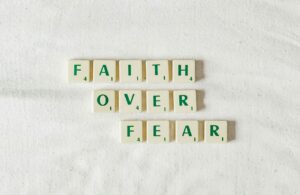I’m often asked why I chose to become a Quaker warden. As well as “what IS a Warden?”. Quaker Life have a page that gives the current understanding, plus supplies questions and answers to anyone looking at appointing or managing wardens with Britain Yearly Meeting.
Wardens are mentioned several times in Quaker Faith & Practice:
4.13 Pastoral Care & Outreach
The potential contribution of meeting house wardens to outreach should be borne in mind, particularly when rebuilding and reorganisation of meeting houses is being considered.
Wardens
13.33 As Friends, we cannot separate our religious calling from our practical work for the kingdom of G*D. As Friends concerned for wardenship, we make our contributions to the local community to those who come to the meeting house. We appear to offer our facility but in fact we offer our love.
QHS conference on wardenship 1981
13.34 The aim of wardenship is to provide a warm and welcoming atmosphere within the meeting house, to create conditions conducive to worship and to offer a service to the community.
Wardenship should be seen as an integrated part of Quaker life and worship, and a responsibility which is shared with the whole meeting. There are unique opportunities for outreach. Many demands are made of wardens who are regularly available.
However, my inspiration for becoming a warden is drawn from other places in QF&P.
Some of which do talk about the intertwining worlds of work and spirituality.
In the following quote, if you replace “parenthood” with “wardenship” you get one of the strongest reasons for my choice of career:
Social Responsibility:
23.63 One of the aspects of parenthood [wardenship] which I enjoy most is putting my mind to trying to solve all sorts of problems. (…) I love to get to work on a thoroughly neglected garden or room and put it right again. I find great satisfaction in being consulted about other people’s problems and helping to sort them out. I have come to the conclusion, therefore, that this is an area in which I shall both find my main direction and satisfy my needs to be creative, practical and supportive. … Helen Edwards 1992
For me, wardenship can be both a concrete form of service and something more liquid and intangible:
- A feeling of doing a job I enjoy, thus liberating members of the meeting for other service.
- Of seeing my living and working as a form of worship.
- Accepting the inspiration and challenge to just BE during the most mundane of jobs and rejoicing in the feelings of achievement when the welcoming feeling of the building is commented upon.
- Or the satisfaction when I am able to communicate information or some of the history of the society or my feelings about the wonders of Quakerism to a caller. Whether a delivery driver who had learned about us in History and had been told by his lecturer that Quakers had died out some time ago; to the more intense enquirer who wants an in depth discussion either by telephone or in person or just a sympathetic ear.
- Or answering a question from a regular hirer. “So what do Quakers do at Easter?”.
- Or when people are able to arrive for Meeting for Worship and find the building, meeting room, and surroundings ready for worshipping – the furniture arranged, the building cleaned, made safe and stocked with necessary items. The week’s post, telephone calls, and enquiries sorted and dealt with.
Of course, these jobs could be done by someone else. But I gain satisfaction in knowing that these tasks and other less obvious ones have been done, so Sunday morning can be focused on worship and fellowship rather than overtaken by more mundane or practical matters.
Wardenship, on a more practical level, enabled me to stay home with our children during their childhood and for us to share times of work and leisure with them.
- They were able to do “real work” and accompany me as I went about completing my duties.
- They saw me living what I felt to be important service, and experienced growing up in a meeting house. A place of worship and fellowship – and a great place to run around and play in when not otherwise occupied!
This mix of spirituality and practicality in my everyday life was, and is, very important to me. It helps me to stay grounded during my spiritual journey and growth.






